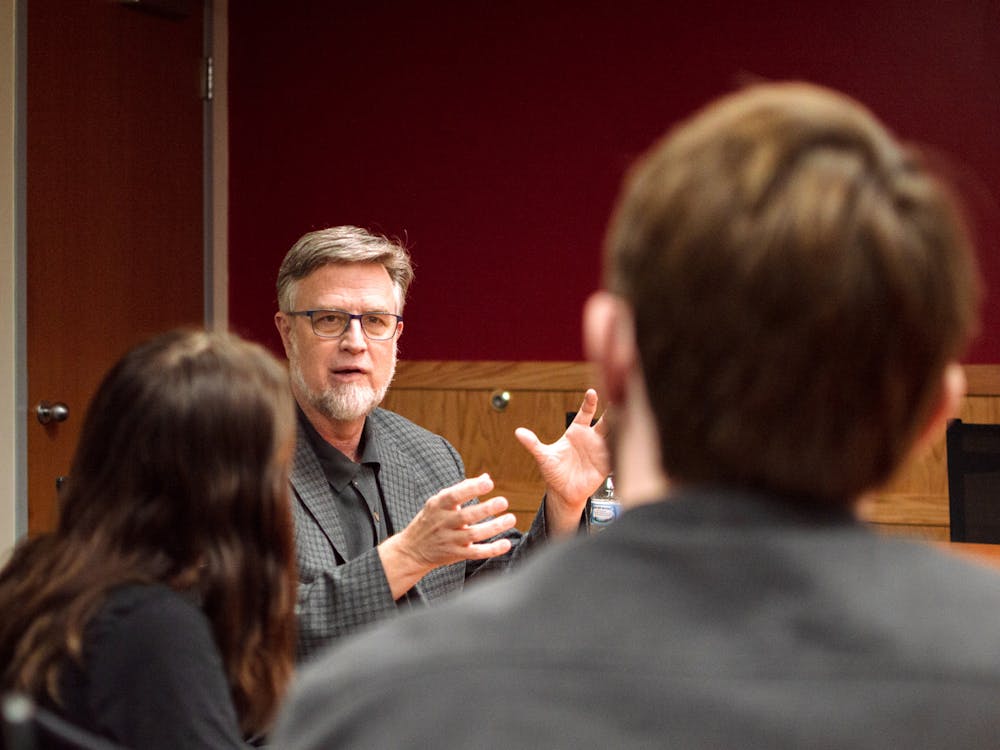By Jeffrey Sadownick, For The Miami Student
Miami University's co-major option, which falls somewhere in between a full major and a minor, has begun to grow in popularity, since the first was introduced in 2002.
Co-majors are majors that must be earned in conjunction with another primary major. They are intended to complement, enhance or specialize one's primary major. For example, a business major interested in working at a company that specializes in green energy might be interested in the Energy co-major.
"The idea is that they add interdisciplinary breadth to disciplinary depth," Director of the Institute for the Environment and Sustainability Thomas Crist said.
Co-majors help students become more competitive in seeking job placement because they provide the opportunity for specialization.
Miami currently offers nine co-majors, spanning a wide variety of topics. Co-majors include Energy, Environmental Science, Sustainability, Pre-medical Studies, Interactive Media Studies, Environmental Principles and Practices, Critical and Classical Languages and Cultures, Analytics and Comparative Media Studies.
Students might think of co-majors as a compromise between double majoring and minoring in an area of study: generally, earning a co-major has fewer requirements than double majoring but more requirements than a minor. A typical major may require about 36 credit hours and a typical minor may require about 18 credit hours, but some co-majors can be completed in 18-24 credit hours.
"With a co-major, as opposed to a major, you do not have to satisfy the divisional requirements in another division," Margaret Ziolkowski, department chair and professor of Russian, said.
Returning to the previous example, the business major with the Energy co-major would only have to complete the core requirements of the Farmer School of Business (FSB) and the specific requirements of the co-major. He or she would not have to complete the core requirements of the College of Arts and Sciences (CAS), even though CAS is the division offering the Energy co-major.
The crucial difference between the co-major and a double major is that double majors must complete core requirements from both academic divisions. The main perk of the co-major is it skips that step.
"It helps you get all the required classes in four years," first-year Katy Kowalski, a Pre-medical Studies co-major, said.
Some of the co-majors have been offered for years, including the Environmental Science co-major, which was the first co-major offered at Miami.
Enjoy what you're reading?
Signup for our newsletter
Other programs have developed more recently. The Critical and Classical Languages and Cultures co-major program is not up and running yet, but it will be within the next semester or two, Ziolkowski said.
No matter what a student's primary major is, Miami students can take any co-major. However, some co-majors such as the Interactive Media Studies require an application for admittance.
Several different academic departments offer co-majors. For example, FSB offers the Analytics co-major, which is designed to teach business students how to use data to make evidence-based decisions. However, any major, business-related or otherwise, can benefit from this co-major.
Some co-majors provide opportunities for even more specialization in the form of different "tracks." These tracks allow students to focus the co-major on a specific aspect. For example, the Analytics co-major offers the choice between the business analysis and predictive analysis tracks. Students can choose one of the two, depending on the field he or she plans to pursue.
"We feel like there's value in having a specific area of expertise," Crist said.
Co-majors prepare students not only for getting jobs but also for graduate or professional schools. The Pre-medical Studies co-major prepares students for getting into medical school and other health professional schools.
"The PMD 101 class was helpful," first-year Coleton Towles, a Pre-medical studies co-major, said. "It made me realize what classes I needed to take. It made me more aware."




